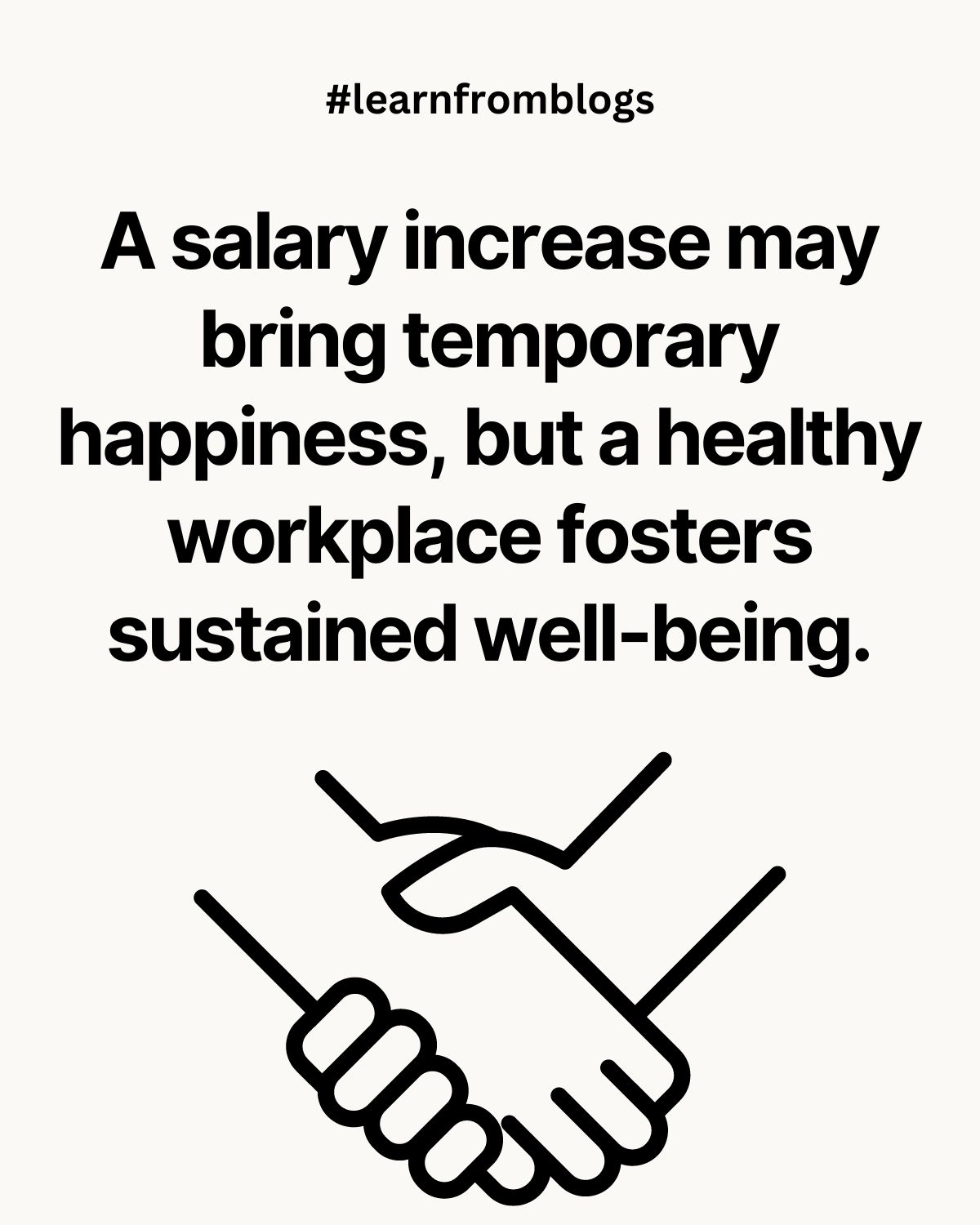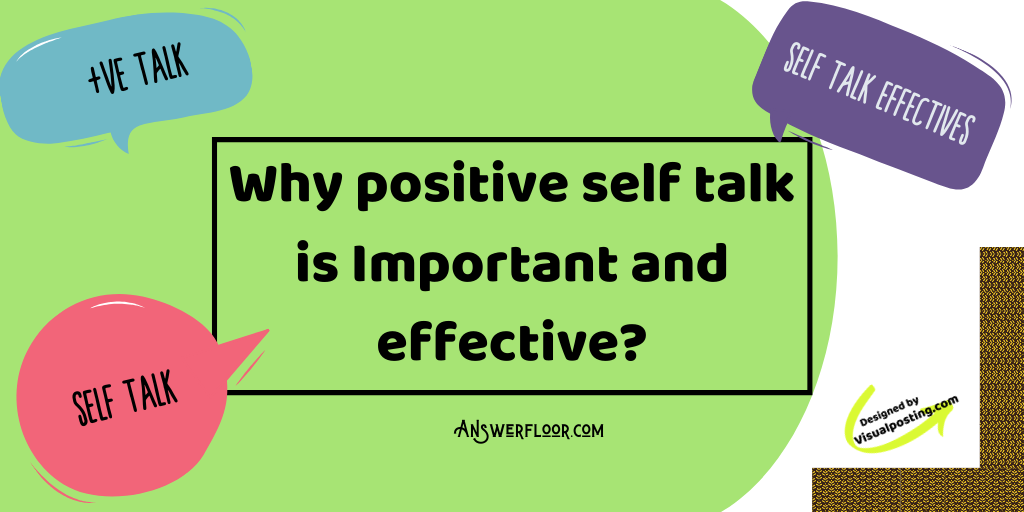
Positive self-talk has a big influence on the way we think, on the way we respond to certain life situations and overall decides the quality of our life.
Positive thinking can be an effective method to deal with stress and related issues. Having a positive outlook on life is sure to give you many health benefits.
Research suggests that optimists have a greater quality of life. If you feel you have very negative self-talk and would want to change it into the positive self-talk, then start with changing your inner dialogues. It will improve your health and make you a positive person altogether. And who doesn’t love being with a positive person?
Be around happy and positive people, find humor in every situation, try not to be over-critical about every situation, keep your feelings in check and transition slowly into a positive self-talk mode. Give your positive and encouraging affirmations and never let yourself down under any circumstances.
If you don’t have control over your feelings, it will be others who will play around with it which can create quite a havoc. Be patient, be kind, be considerate, and eventually everything will fall into place.

- know the value for you in doing the task.
- make sure you know how to do the task.
- prepare to start before diving in.
- use a warm-up routine to make the transition to starting easier.
- enlist support.
- use helpful self-talk.

Research shows that your positive self-talk will help you with improving your performance. This is because you aren’t overly critical about anything or any situation.
It gives you the power to withstand any situation and improves your endurance. Positive self-talk has a wide range of health and other benefits.
Some of them include better immune function, reduced pain, increased vitality, greater life satisfaction, better physical well being, less stress, anxiety and depression, reduced risk of ailments and better cardiovascular health.
THE IMPORTANCE OF POSITIVE SELF-TALK
If it is not your natural instinct, you can simply practice and learn. Encourage yourself to be aware of every inner dialogue you have with yourself and if that’s negative, instantly change them into a positive one.
It will take time but in the end, you will lead a happy and content life. Surround yourself with positive people as you can absorb people’s feelings and emotions. If you stick around with negative people, you will be sucked up into their emotions and that’s a downward trend.
SWITCH GEARS
Take a look back at your negative lists and try to gain a positive or kinder way of saying it.
Example 1: I did too bad on my dance. I won’t dance ever anymore.
I will try doing it better the next time.
Example 2: I’m very fat and ugly. Nobody loves me. I’m going to be single all my life.
I have to work hard and be in shape.
There is a world of a difference in the way both the sentences are being said. The first one is outright negative and creates a bad influence on your mind and eventually body. But the second sentence is said in a much lighter and effective tone.
If you choose to let yourself down, then nobody can help you get out of it. Try to be more positive in your thoughts have a positive outlook on life. If you constantly keep telling yourself that you are ugly, your body and mind start accepting that as the truth. That becomes the way you perceive yourself. This will lead to low self-esteem and lack of confidence. Get over the negativity and be passed that phase.
"The road to success and the road to failure are almost exactly the same." -- Colin R. Davis
THINK THROUGH EVERY POSITIVE SELF-TALK
Ask yourself questions about every thought that crosses your mind.
Am I mind reading and assuming things people may not even believe?
Am I overreacting in every situation?
Is it a really big deal or is it going to harm me in any way?
Should I learn to not take things seriously?
Will that be important in the long run?
Am I generalizing and coming to conclusions based on my own assumptions?
Could I be right or could I be wrong?
Is it accurate and real?
What if I’m wrong?
Asking these questions to yourself will help you know what’s worth it and what’s not. It will help you realize what is important and what’s not. This is an important aspect of looking at what you speak to yourself.
Observe, listen and learn
This is the first step to self-talk. This is where you can watch what you say and how you react to it. Spend a week or two to closely observe your inner dialogues. Watch what you say in every particular event.
Are you supportive of your decisions?
Was your self talk productively?
Was it positive or negative?
Would you consider telling your words or thoughts to a loved one?
Are common issues repeated?
Are you too critical of yourself?
Make a diary and list all down the important or negative thoughts.
Before you learn how to positively self-talk, you must first observe your negative thoughts. This kind of thought and self-talk fall into four categories.
– Personalizing:
This one is where you start blaming yourself for everything. You feel you are responsible for all the wrong things happening in your life.
– Magnifying:
You start focusing on the negative side of the picture tend to avoid all the positive points.
– Catastrophizing:
Here, you start expecting the worst. You seem to believe everything is going to end and the end is near.
– Polarizing:
You start seeing the world in one color. You stop giving categories to events and everything happens at a single pace.
When you start recognizing your negative points is when you can convert them into positive ones. The positive self-talk builds over time.
Language matters on positive self-talk
A recent study reported that self-talk is necessary but the language used for expressing the thought is also equally important. The most important key in practicing self-talk is don’t refer to yourself as “I” or “me”. Refer to yourself as a third person by either using your name or using words like “he” or “she”.
The report suggests that using a third person during self-talk can help you recognize your emotions and think more objectively about what you said. This also helps to reduce your stress, anxiety or depression issues.


What is self talk?
Self-talk is something that occurs naturally during your waking hours. Although positive self-talk may come naturally to people, a majority of times, that may not be the case. Most people need to learn how to get used to positive thought and positive conversations. With a lot of practice, it can become much easier to have positive self-talk.
WHAT IS THIS POSITIVE SELF TALK?
It is something said to boost our minds, refresh our energies and speak affirming sentences. “I shall work out and set a routine to get back in shape”, this one sounds like a positive statement, whereas ” Working out won’t make much of a difference, I better stay at home and gorge up on some food”, this here one is a contrasting negative point to the positive one.
A lot of the times out thoughts start to wander. We crib over unnecessary things and spend our valuable time thinking about upsetting things. This way you start to worry and stress over things. Thinking through a problem can be great but ruminating over it will only make it worse than ever. Constant or continuous rumination will ultimately give you stress, anxiety, and depression.

Positive self-talk helps in building self-confidence and curbing negative emotions. Take a minute out of your schedule and think about what have you spoken to yourself today. Was it nice? Was it helpful or critical? Did that make you feel better? Analyze your thoughts. Your thought influences your emotions and mood in a huge way.
What you tell yourself is what you start believing. Instead, talk well about everything and everyone. Notice the effects it has on you. They influence how you feel about everything and how you respond to certain life events. Positive self-talk can be used as a powerful tool to build your self-esteem and self-confidence. Individuals who practice the art of self-talk are known to be more confident, productive and motivated.









